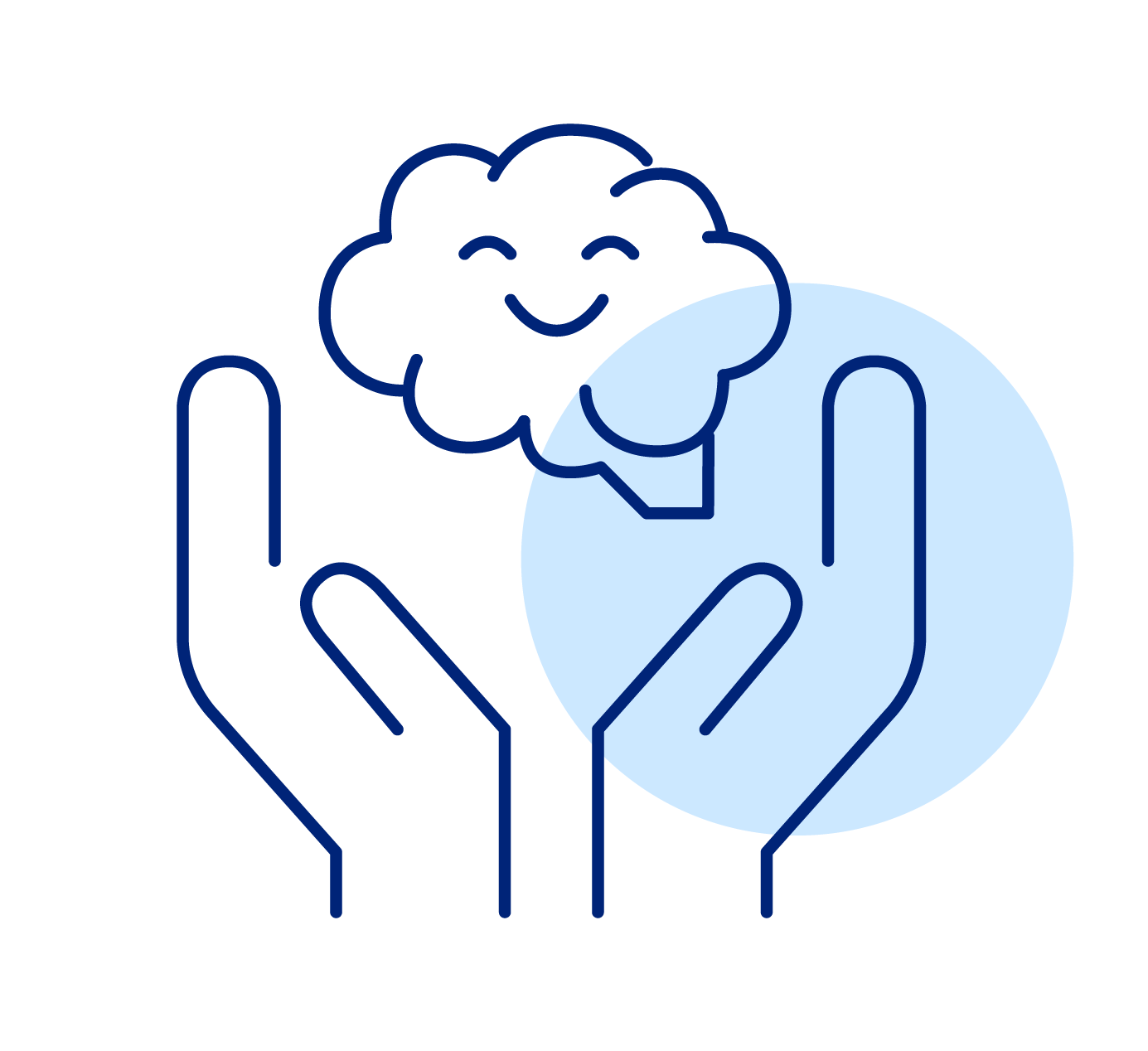Embracing Self-Awareness and Reflection: Vital Practices for Behavioral Health Providers
In the dynamic and ever-evolving field of behavioral health, the concepts of self-awareness and self-reflection are fundamental for providers. Several research studies have shown that both are an integral part of patient care and impact clinical outcomes. Studies consistently show that providers who actively practice self-awareness and self-reflection establish stronger therapeutic alliances, enhance clinical competence, and experience reduced burnout. Additionally, these practices contribute to increased cultural competence, personal growth, and overall well-being, underscoring their crucial role in effective therapy.
Self-awareness involves being consciously aware of one’s thoughts, feelings, behaviors, strengths, weaknesses, and motivations. It requires an understanding of how one’s actions and emotions impact both oneself and others. Self-aware individuals can reflect on their experiences, draw connections between their internal state and external circumstances, and clearly understand their identity and values. Just as behavioral health providers guide their clients in developing self-awareness, to truly excel in this role, providers must embark on their own journey of self-discovery and foster a profound sense of self-awareness. This process is ongoing and extends throughout one’s life.
Self-reflection is a cognitive and introspective process through which an individual consciously contemplates, analyzes, and evaluates their thoughts, feelings, experiences, and actions. It involves thoughtful consideration of one’s beliefs, values, and behaviors to gain insights, learn from past experiences, and make informed decisions. This self-reflective ability is crucial for personal growth, establishing effective interpersonal relationships, and making well-informed decisions in alignment with one’s authentic self.
Outlined below are 9 distinct ways in which self-awareness and self-reflection are important practices for providers.

Contributes to authenticity in practice:
As clients seek behavioral health services to navigate life’s complexities, providers embracing self-awareness and reflection model authenticity in their own lives, inspiring clients to do the same. The therapeutic relationship thrives on a foundation of openness and transparency. Authenticity involves therapists being genuine, transparent, and true to themselves while engaging with clients. It goes beyond professional skills, encouraging therapists to bring their real selves into the therapeutic relationship. Authenticity fosters a sense of trust and connection between therapist and client, creating a safe space where clients feel understood and accepted. Therapists who embrace authenticity are more likely to navigate the complexities of the therapeutic process openly, leading to more meaningful and effective interventions. This approach also encourages clients to be authentic in their own exploration and expression, contributing to a collaborative and transformative therapeutic experience.

Enhance empathy and connection:
Both empathy and connection are cornerstones of effective therapeutic practice. Behavioral health providers, through self-awareness, can deepen their empathy by acknowledging and comprehending their emotional landscape. This heightened empathy establishes genuine connections with clients, fostering a safe environment grounded in authenticity.

Identify and acknowledge biases:
Self-awareness and reflection are essential tools for behavioral health professionals in addressing biases. By gaining a deep understanding of their own beliefs and values, practitioners can minimize the impact of personal biases on their interactions with clients. This heightened self-awareness fosters a more open and unbiased mindset, contributing to culturally competent and inclusive care. Reflection prompts professionals to scrutinize their assumptions and preconceptions, offering opportunities to challenge and reshape any biases influencing their therapeutic approach. Overall, the combination of self-awareness and reflection empowers behavioral health professionals to provide equitable, respectful, and unbiased care to a diverse clientele.

Manage countertransference:
Through ongoing self-reflection, therapists can mitigate the impact of countertransference on the therapeutic relationship. Recognizing and addressing countertransference enables therapists to maintain objectivity, make informed clinical decisions, and provide more empathetic and client-centered care. Additionally, a heightened self-awareness helps therapists establish appropriate professional boundaries and seek supervision or consultation when needed. Ultimately, the integration of self-awareness and reflection serves as a powerful tool in managing and utilizing countertransference constructively for the benefit of the therapeutic process

Mitigate burnout:
The demanding nature of the profession can take a toll on providers, and self-awareness and honest reflection act as a protective shield. By recognizing their stressors, boundaries, and emotional responses, behavioral health professionals can implement effective self-care strategies, ensuring their sustained well-being in the challenging landscape of mental health care.

Acknowledge growth and achievements:
Reflecting on the past year provides an opportunity to acknowledge your personal and professional growth. Celebrate your achievements, both big and small. Take the time to recognize your accomplishments and foster a positive mindset as you move into the new year.

Learn from life’s challenges:
Self-awareness and reflection on life’s challenges is a transformative process that provides invaluable insights into one’s strengths, weaknesses, and resilience. It serves as a crucial tool for personal growth, enabling individuals to learn from adversity, adapt to changing circumstances, and cultivate a deeper understanding of themselves. Embracing self-reflection fosters resilience, enhances problem-solving skills, and empowers individuals to navigate life’s complexities with a greater sense of purpose and self-awareness.

Assists you to set intentions for the future:
Self-awareness and reflection set the stage for intentional goal-setting. As you reflect on the past year and acknowledge what you’ve accomplished, consider what you want to achieve in the coming months. Setting realistic and meaningful goals provides a sense of purpose and direction, contributing to overall life satisfaction.

Acknowledge what you are grateful for:
Cultivating gratitude is a powerful way to enhance mental well-being. Take time to reflect on the positive aspects of your life—the people, experiences, and opportunities that brought joy. Gratitude can shift your focus from what’s lacking to what’s abundant, fostering a sense of contentment.
A Practice to Welcome in the New Year
Reflecting on the past year and setting intentions for the new one can be a powerful and insightful practice. Take a moment to pause, reflect, and appreciate the journey you’ve traveled to date. Find a quiet and comfortable space to be alone with your thoughts and eliminate distractions. Have a pen and paper to write down your reflections. These reflection questions aim to gain insight into your experiences, celebrate achievements, and set positive intentions for the future. Feel free to adapt these questions based on your preferences and focus areas.
Mindfulness and Presence:
- How present were you in your daily life throughout the past year?
- What mindfulness or presence practices can you incorporate into your routine for the new year?
Looking Back:
- What were the major highlights and accomplishments of the past year?
- What were the most significant challenges or obstacles, and how did you overcome them?
- What lessons did you learn from both positive and negative experiences?
Personal Growth:
- In what ways did you grow as an individual in the past year?
- What new skills or knowledge did you acquire?
- How did you work on improving your mindset or emotional well-being?
Relationships:
- Who were the most important people in your life last year, and how did you nurture those relationships?
- Which relationships, if any, did you find emotionally draining or challenging in the past year?
- Are there any relationships that you want to repair this year? How might you take a step towards repairing?
Gratitude:
- What were the small everyday things that brought you joy or happiness?
- What are you grateful for from the past year?
Well-being:
- How did you prioritize your well-being this past year?
- What activities or practices helped you relax and recharge?
- Were there any points in the year where you felt burnt out? What can you do to mitigate burnout this year?
Values Alignment:
- Reflect on your core values. Did your actions and decisions align with these values in the past year?
- How can you ensure better alignment moving forward?
Self-Examination of Beliefs:
- What cultural beliefs or values might be influencing my perspectives on mental health and wellness?
- How do my own cultural experiences shape my assumptions about clients’ needs and preferences?
Goals and Intentions:
- What are your top priorities for the coming year?
- Are there specific goals you want to achieve personally and professionally?
Accountability and Support:
- How will you hold yourself accountable for your goals?
- Who can provide support, encouragement, or accountability as you work towards your intentions?
In the realm of behavioral health, self-awareness stands as a foundational element crucial for effective therapy. Mental health providers have a professional obligation and embark on a transformative journey that enriches personal and professional life by cultivating self-awareness. This awareness becomes a guiding compass in navigating the intricate tapestry of the human mind, illuminating the path to healing for mental health professionals and those they serve. As we close another year and begin a new one, it’s vital to pause and engage in the powerful practice of reflection. Engaging in this reflective exercise is not merely a ritual but a powerful tool, fostering mental health by cultivating resilience, gratitude, and a sense of purpose, providing fertile ground for genuine growth and well-being as one transitions into the new year.
References
Grepmair, L., Mitterlehner, F., Loew, T., Bachler, E., Rother, W., & Nickel, M. (2007). Promoting Mindfulness in Psychotherapists in Training Influences the Treatment Results of Their Patients: A Randomized, Double-Blind, Controlled Study. Psychotherapy and Psychosomatics, 76(6), 332–338. https://doi.org/10.1159/000107560
Knapp, S., Gottlieb, M. C., & Handelsman, M. M. (2017). Self-Awareness Questions for Effective Psychotherapists: Helping Good Psychotherapists Become Even Better. Practice Innovations (Washington, D.C.), 2(4), 163–172. https://doi.org/10.1037/pri0000051
Knapp. (n.d.). Enhancing professionalism through self-reflection. Professional Psychology, Research and Practice., 48(3), 167–174. https://doi.org/info:doi/








